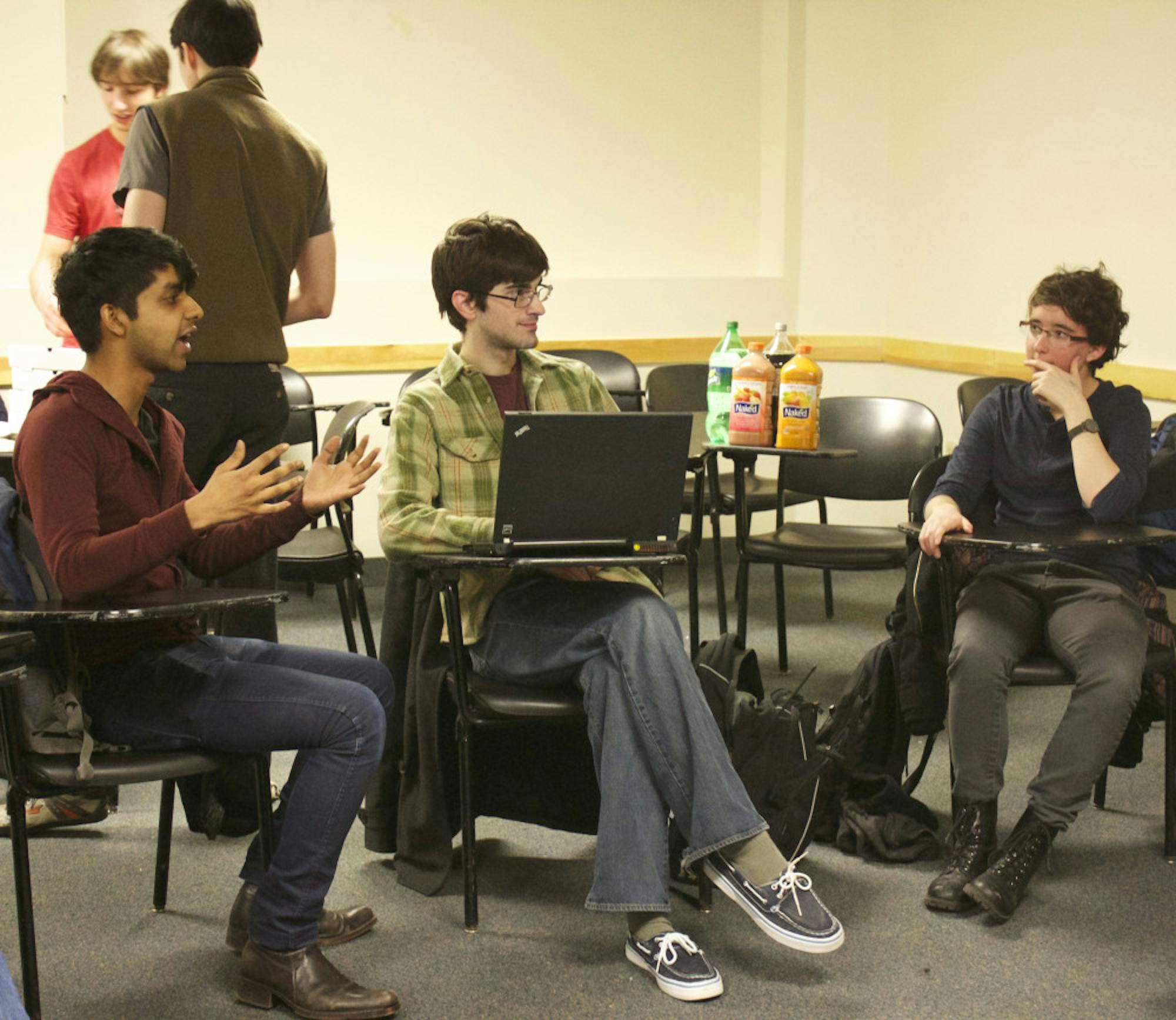Tufts Digital Rights Group is a new group on campus that aims to facilitate discussions of issues of privacy and digital surveillance in the modern era. The group, started by sophomoresAahlad Gogineni and Stephen Michel, seniorCaleb Malchik and alumnus Ian Kelly (A '14) held its first general interest meeting last Wednesday.
According to Malchik, Tufts Digital Rights Group aims to facilitate discussion on the problem of government surveillance and the issues that stem from it.
“Right now, I sense that there’s not a huge amount of interest and there’s no awareness for the importance of these issues,” Malchik said. “I think we are working on generating discussion and making it into something that people talk about.”
Michel also said that the group aims to convince people to care about digital rights and privacy issues. For Michel, the issue lies in adjusting for the present.
“The majority of our laws have been written before the digital age,” Michel said. “So moving into the digital age, what rights do we currently have? What rights should we have, and how can we go about getting policy to match those ideals? I think this is something worth talking about in going forward.”
According to the co-founders of Tufts Digital Rights Group, the National Security Agency (NSA) and its surveillance will be a primary topic of discussion.
“Information is power, and when the NSA has access to everyone’s communications, it creates a huge imbalance of power,” Malchik said.
Kelly added that the NSA's surveillance prevents people from making their own decisions.
“The NSA fails to give the civilian population a chance to be autonomous," Kelly said. “Failing to trust your civilians to be autonomous and mature, and instead restricting them and not feeling they can make the right decisions is a huge problem.”
Although digital surveillance is becoming a global issue, Gogineni sees a deeper and more insidious problem at hand. For Gogineni, people's complacency and passivity to the “invisible surveillance” is the real issue.
“If you’re a law abiding citizen who does absolutely nothing controversial, never tries to change any existing system or do something that might be against the interest in power, then your life will be just fine," Gogineni said. "Other than that, your interest will not be represented. This is definitely not a good thing. You probably won't be thrown to jail unless you do anything to try and make your life better or different, but that’s the whole point of democracy."
Gogineni added that it should be the citizens of a society that motivate change.
"Citizens get to effect change, and the people in power are elected by the citizens and are chosen to act in their interests," he said. "It’s not supposed to go the other way around, that citizens are fine as long as they are compliant with whoever’s in power.”
If citizens have in fact lost the power to enact change, Malchik believes that the consequent imbalance of power between the government and its people has the “potential to completely eliminate people’s ability to get together and create change."
In its weekly Wednesday meetings, the Tufts Digital Rights Group will read excerpts from books and utilize relevant media resources to fuel discussion in these issues, according to Gogineni.
Although no plans for physical action and change have been made yet, the co-founders of Tufts Digital Rights Group first hope to see Tufts students care and actively engage in educating themselves in these issues.
“It’s really not about the four of us,” Kelly said. “It’s every single individual, not just Tufts students, but every single individual living in the country. This affects them personally, so it’s really about them. It’s about getting more freedom, getting the ability to do what they want without consequences.”
New Digital Rights Group to facilitate discussion on government surveillance

The Tufts Digital Rights Group held their first GIM in Jackson Hall on Wednesday, Feb. 25, 2015. They aim to promote more widespread awareness of issues such as digital surveillance.





